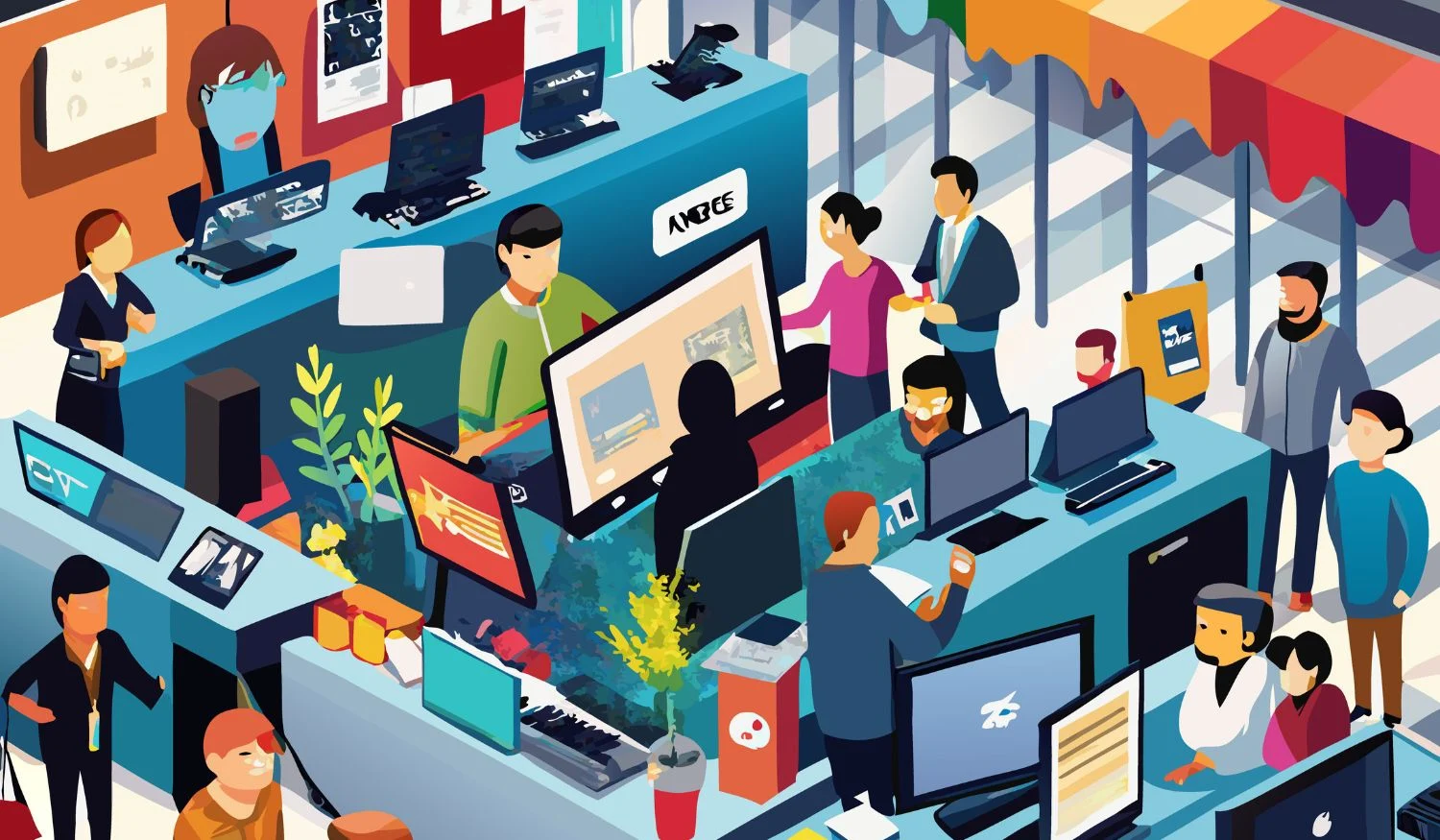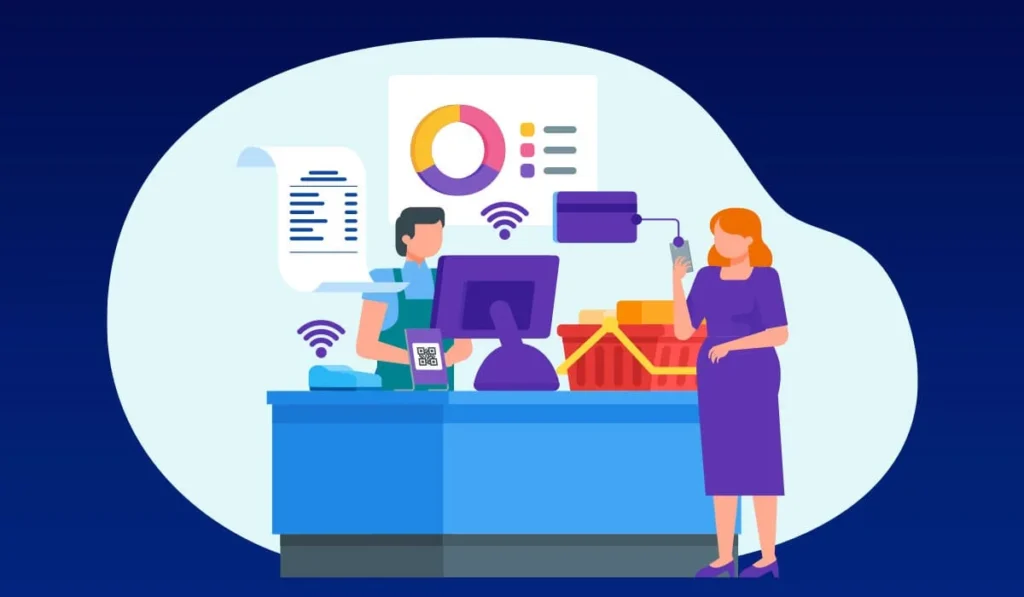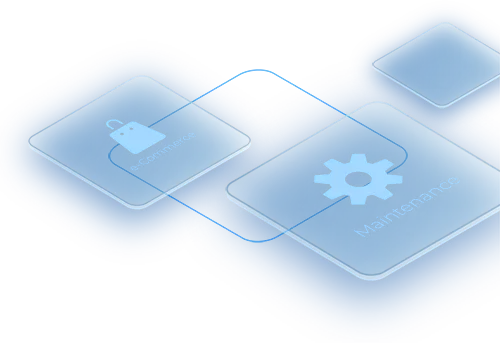
What Is The Importance Of POS Systems in Restaurants

What Is The Importance Of POS Systems in Restaurants
The restaurant industry is one of the fastest-growing sectors globally, characterized by fierce competition and rapidly evolving customer expectations.
In such a dynamic environment, operational efficiency and customer satisfaction are crucial for success.
The POS (Point of Sale) system is one pivotal tool that has transformed restaurant operations.
The importance of POS systems in restaurants cannot be ignored in this digitally competent business world.
They streamline processes, enhance customer experiences, and provide valuable insights into business performance.
Through this blog, we will explore how a restaurant POS system works, its various components, and the multitude of benefits it offers.
Content Index

How a Restaurant POS System Works
A restaurant POS system consists of two primary components: hardware and software.
They facilitate a seamless interaction between customers and restaurant staff, ensuring efficient order processing and payment management.
1. Restaurant POS Hardware
The hardware of a restaurant POS system includes physical devices that enable order-taking and payment processing.
Some of the key components include:
Touchscreen Monitors
These user-friendly displays allow staff to input orders quickly and accurately.
They often feature customizable layouts, making it easy for employees to navigate menus and access frequently ordered items.
Receipt Printers
Essential for both customer and kitchen communication, receipt printers generate detailed bills for customers and kitchen tickets for chefs.
High-speed printers ensure that orders are printed promptly, maintaining service flow during busy periods.
Cash Drawers
Secure and reliable, cash drawers are designed to store cash from transactions safely.
Many models come with features like bill and coin compartments, as well as secure locking mechanisms to prevent theft.
Card Readers
These devices are crucial for processing credit and debit card payments.
Modern card readers often include NFC (Near Field Communication) technology, enabling contactless payments for added convenience and speed.
Order Entry Devices
Tablets or handheld devices allow servers to take orders directly at the table, reducing wait times and improving order accuracy.
Many devices also support customer-facing displays to enhance the dining experience.
The selection of reliable and efficient hardware is essential to ensure the importance of POS systems in restaurants.
The right hardware can provide a robust backbone for your restaurant operations.
2. Restaurant POS Software
The software component is the brain of the POS system.
It manages all transactions and integrates various functionalities, including:
Order Management
This feature facilitates real-time order input and tracking, allowing staff to modify orders as needed and send them directly to the kitchen.
This seamless communication minimizes errors and enhances service speed.
Payment Processing
The POS software securely handles various payment methods, including cash, credit cards, and mobile payments.
It ensures compliance with security standards (like PCI DSS), safeguarding sensitive customer data.
Inventory Management
Real-time inventory tracking is vital for ensuring that menu items are available.
The software alerts staff when stock levels are low and can automatically reorder items based on predefined thresholds.
This reduces the risk of running out of popular dishes and helps prevent overstocking, which can lead to waste.
By optimizing inventory levels, restaurants can maintain a smooth workflow, minimize costs, and improve overall customer satisfaction.
Sales Reporting
Detailed reports generated by the POS system allow restaurant owners to analyze sales trends, identify peak hours, and understand customer preferences.
Reports can be customized to track specific metrics, helping in strategic planning and marketing efforts.
Customer Relationship Management (CRM)
Many POS systems include CRM features that help restaurants gather customer data, manage loyalty programs, and personalize marketing efforts.
Understanding customer behavior enhances the dining experience and fosters loyalty.
By analyzing customer preferences, restaurants can offer tailored promotions, increasing customer retention and satisfaction.
Tracking dining habits also helps in targeted communication, turning one-time visitors into repeat customers.
The importance of POS systems in restaurants is clear, as its CRM features strengthen customer relationships and boost long-term business growth.
Employee Management
POS software can assist in tracking employee hours, performance, and sales.
By analyzing staff productivity, managers can optimize scheduling and incentivize high-performing employees.
Integration with Other Systems
Modern POS systems can integrate with other restaurant management tools, such as accounting software, online reservation platforms, and delivery services.
This integration streamlines operations and enhances overall efficiency.
Benefits of POS Systems for Restaurants
The adoption of a robust POS system can contribute numerous benefits to your restaurant business.
It is a key tool that can significantly improve overall restaurant performance and customer satisfaction.
Here’s an in-depth look at how POS systems elevate restaurant management across various functions:
Streamlined Ordering and Payment Processing
One of the primary advantages of a POS system in a restaurant is its ability to streamline the ordering and payment processes.
Servers can input orders directly into the system, which are instantly relayed to the kitchen, reducing the likelihood of errors.
Payments are handled seamlessly, allowing customers to pay through various methods such as credit cards, mobile payments, or cash.
This speeds up the entire transaction process, enabling quicker table turnover and enhancing customer service.
Inventory Management
Inventory control is critical for restaurant profitability, and a POS system plays a crucial role in the real-time tracking of stock levels.
As menu items are ordered and served, the system automatically adjusts inventory, preventing shortages or over-ordering.
It also alerts management when supplies are low, allowing for timely restocking.
This automation reduces waste, keeps costs in check, and ensures that the most popular dishes are always available.
Sales Tracking and Reporting
POS systems offer detailed sales tracking and reporting, which helps restaurant owners monitor performance and identify trends.
Managers can use daily, weekly, or monthly reports to identify best-selling menu items and track peak hours.
This data helps them adjust staffing levels and tailor promotions effectively.
These insights are invaluable for strategic decision-making, marketing efforts, and menu planning.
Improved Customer Experience
The importance of POS systems in restaurants lies in their ability to enhance the customer experience.
With faster service, accurate orders, and streamlined payment options, customers enjoy a more pleasant dining experience.
Many POS systems also offer features like split bills, loyalty programs, and personalized promotions, further enhancing customer satisfaction.
This kind of seamless interaction not only improves customer loyalty but also boosts positive word-of-mouth referrals.
Employee Management
Managing staff effectively is crucial for restaurant operations.
POS systems simplify employee management by tracking working hours, scheduling shifts, and monitoring individual performance.
By analyzing sales performance and tips, managers can identify top performers and optimize shifts based on sales trends.
This ensures efficient staffing and can also reduce labor costs.
Integration with Other Systems
POS systems don’t work in isolation and seamlessly integrate with other crucial systems, such as accounting, online ordering, and delivery management tools.
These integrations create a cohesive ecosystem where data flows freely between systems, eliminating manual data entry and reducing human error.
This also means that restaurant owners can manage multiple aspects of their business from one central hub, enhancing operational efficiency.
By streamlining processes, POS systems allow for better decision-making, improved coordination, and increased productivity.
Ultimately, POS systems boost customer satisfaction by ensuring smooth, error-free operations and fast service.
Enhanced Security
A POS system enhances security by securing payment transactions and sensitive customer data.
With encrypted card processing and compliance with PCI DSS (Payment Card Industry Data Security Standard), restaurants can protect themselves from fraud and data breaches.
Modern POS systems have built-in security features that track employee access, helping to reduce internal theft and maintain accountability.
Operational Efficiency
A POS system can improve operational efficiency by automating many day-to-day tasks and freeing up time for staff to focus on customer service.
From managing orders to monitoring stock levels, the importance of POS systems in restaurants is clear and undeniable.
These systems streamline processes, reduce errors, and enhance communication among staff.
It reduces manual work, facilitating smoother workflows and faster service.
Restaurants can serve more customers in less time, ensuring high productivity and profitability.
Flexibility and Scalability
Whether you’re running a small cafe or a chain of restaurants, POS systems are designed to grow with your business.
They offer the flexibility to add new features or modules as your restaurant expands.
Whether adding online ordering, delivery options, or new payment methods, a POS system can adapt to your changing needs without a complete redesign.
This scalability ensures that your technology keeps pace with your growth, helping you remain competitive.
As your customer base increases, the POS system can accommodate higher transaction volumes, making it easier to manage operations efficiently.
This adaptability will support your long-term success in the dynamic restaurant industry.
Real-time Analytics
With access to real-time analytics, restaurant owners can make informed decisions swiftly and confidently.
POS systems provide up-to-the-minute insights into sales, inventory levels, and staff performance metrics.
This enables data-driven adjustments during service for improved efficiency and customer satisfaction.
Real-time data is crucial for spotting emerging trends and identifying potential operational issues.
It helps optimize restaurant operations on the go, enhancing overall performance and profitability.
Conclusion
The importance of POS systems in restaurants is evident across various operational aspects.
They enhance customer experiences and provide critical insights for informed decision-making.
A robust POS solution is vital for keeping pace in today’s competitive food service industry.
EBR’s Restaurant POS Software delivers tailored features that meet the unique demands of restaurants.
With its user-friendly interface and robust features, EBR keeps your restaurant competitive and responsive.
Choosing the right POS system is a strategic move for achieving excellence in service and operations.
Let's Connect!
Are you currently exploring software solutions for your business? 🤔
Great! What’s the single biggest challenge you’d like a software solution to solve for your business? 🎯
💡 Suggested Solution Ideas:
Just one more step! Share your details so our experts can connect with you personally and discuss tailored solutions. 🤝
Thank You for Connecting! 🎉
We've received your information and a specialist will be in touch with you very shortly to discuss how we can help your business thrive.
In the meantime, feel free to browse our resources or reach out if you have immediate questions.
Understood! 🙏
No worries if you're not exploring software solutions right now. Our door is always open if your needs change!
Feel free to explore our other offerings or connect with us anytime.
Featured






